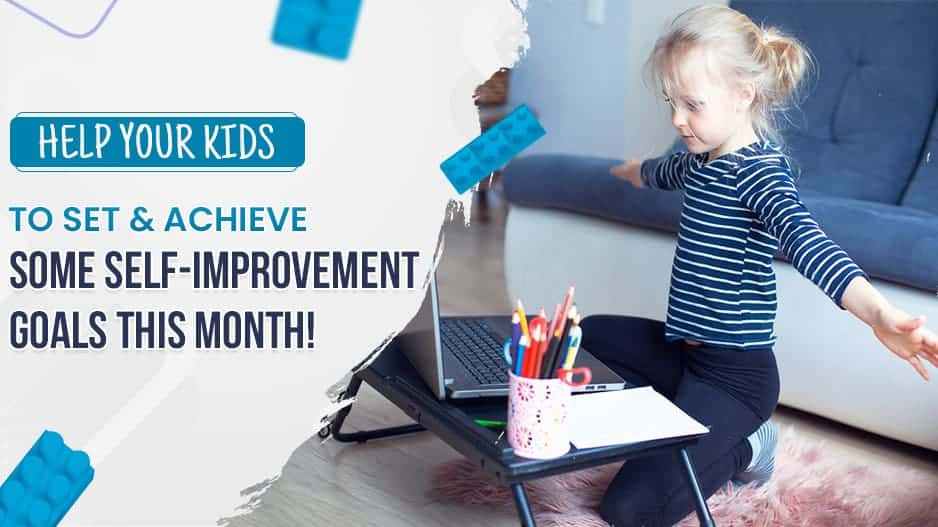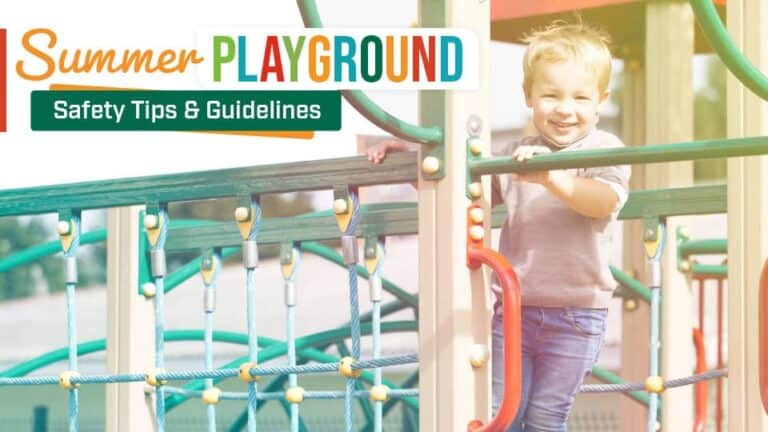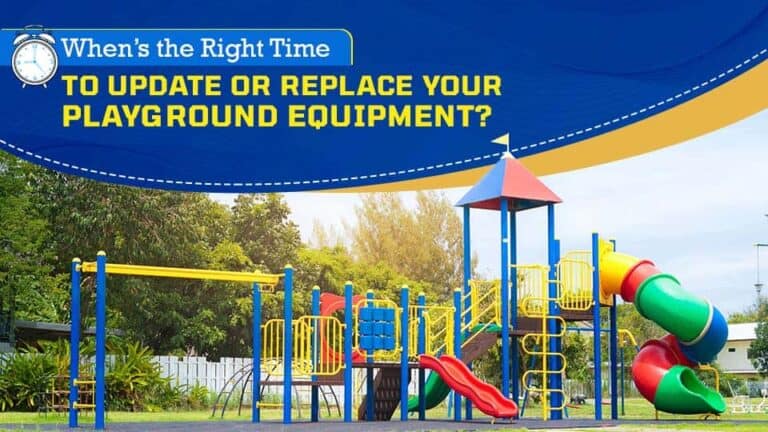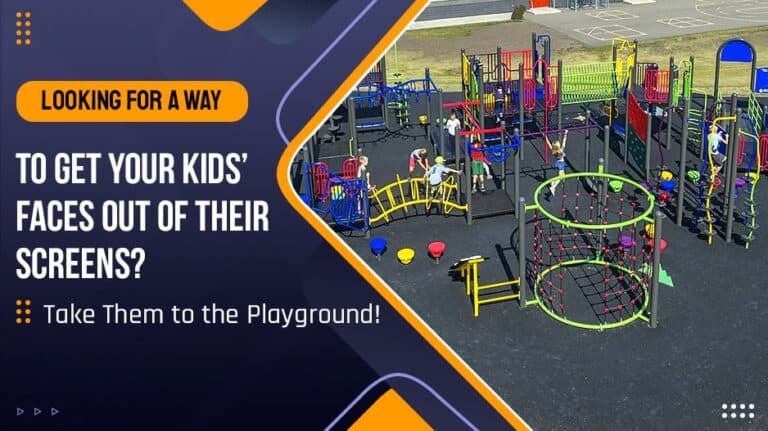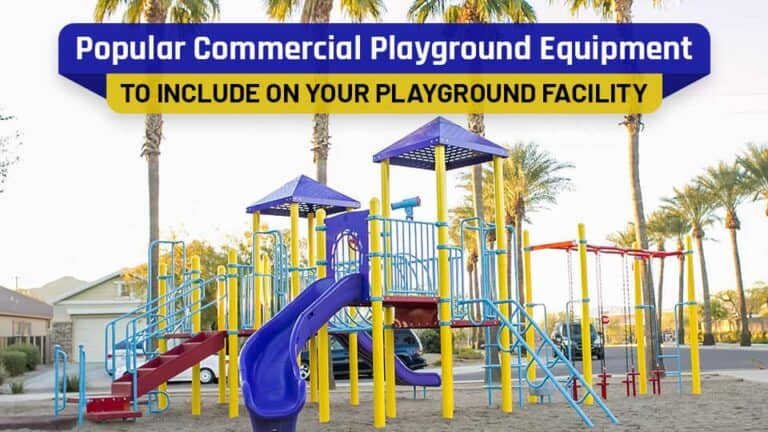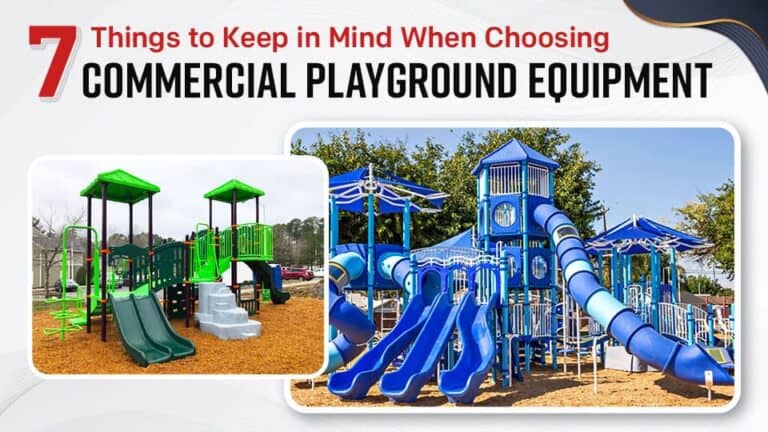Help Your Kids to Set & Achieve Some Self-Improvement Goals This Month!
September Is Self-Improvement Month!
Did you know that September is National Self-Improvement Month? Well it is, which means there’s no better time to set some self-improvement goals for yourself than the present!
But what does this have to do with your children, exactly? Just because children are still young adults in development doesn’t mean they can’t set and achieve some of their own goals, as well. And as a devoted, caring, well-intentioned parent, you can start now to help your children gain a better understanding of what self-improvement means, why it matters, and how to go about it.
Understanding What Self Improvement Means
But first, maybe we should say a bit more about what self-improvement is in the first place. The goal of self-improvement is really as simple as it sounds – it’s about seeking to become a better version of yourself. You decide which area or areas of your life (which can include physical, mental, emotional, social, spiritual, or other areas) you’d like to improve, and then you choose some particulars to work on for your own betterment. It’s that simple!
But of course, just because something’s simple, that doesn’t necessarily make it easy. And the fact remains that self improvement is one of those topics that’s frequently thrown around and talked about by people, but we don’t act or execute upon it nearly often enough. Here’s a case-in-point from popular culture: New Year’s Resolutions.
Folks make New Year’s Resolutions every year. Why? Because that’s what you’re supposed to do whenever the calendar flips over to January 1 rolls around. The problem? Very few of those resolutions every get acted upon. So what does that really achieve in terms of personal self-improvement value? Nothing.
Self-Improvement Month – A Nudge in the Right Direction
In an effort to help people take more tangible (and realizable) steps towards their own self improvement, national Self-Improvement Month was established some years back. The idea is to choose a self-improvement goal to focus on, and then spend the month of September actually choosing to do something about it. While New Year’s Resolutions can be vague and hard to create an action plan around, spending a single month focused on a specific self-improvement goal is something that’s really more doable. Even measurable.
Improve Yourself for Your Own Good, AND for the Good of Your Children
It goes without saying that most of us adults have an opportunity to create a better version of ourselves. Even if no one else is willing to be honest about it, I’ll raise my own hand here – I know that I’m someone in need of improvement! If you’re a parent, you should absolutely be working on improving yourself, if for no other reason than the fact that YOUR KIDS ARE WATCHING YOU. In many cases, children will reflect what is modeled to them. So ask yourself – what am I currently modeling for my kids to emulate? If you don’t like the answer to your own question, then it’s time for you to make some personal changes.
How to Lead Your Kids to Set – and Achieve – Their Own Self-Improvement Goals
But how can you help your children to set their own self-improvement goals? Since they’re still young and still in the process of forming their own individual identity, personality, and habits, now is the BEST time to help them work towards creating the best version of themselves. Here are some good tips and strategies you can follow as a parent or caregiver:
1. Affirm self-acceptance first, before thinking about self-improvement
The LAST thing you want to do is to encourage your children to bash themselves over not being good enough. By the time they become teenagers, most children are already well-aware of their inadequacies and insecurities! Start by encouraging young children to identify their own strengths, and to feel good about those. Then you can lovingly help them to identify an area or two they’d like to improve. And all throughout the process, be intentional about finding some things to praise in your child. Positive encouragement and motivation goes much farther than what just feels like criticism.
2. Point to the things that are within your child’s control
Part of the magic of positive encouragement is about being specific with your praise. Don’t just say “Great job!” Be specific about what your child did (or does) well. “Great job brushing your teeth right after breakfast!” will mean more, because it helps your child to understand what they did well, and why it matters. Focus on the effort given by your child, and on the positive outcomes achieved by that effort. Praising specifics helps your child to focus on the things they can control for themselves, including their individual effort and attitude.
3. Set some goals together
Most children (unlike most adults) actually like to set goals for themselves. They already do it on their own to some degree. Your goal as a parent or caregiver in this instance is to help your child to set better goals towards achieving better real-world outcomes. Help your children to keep track of their goals, and be the first to help them celebrate after every small win they achieve.
4. Debrief and reflect together
Sometimes, your child won’t succeed, or may even suffer a setback towards reaching a particular goal. That’s to be expected; we’re all only human, after all! Help your child to process specific events and efforts. If they weren’t completely successful in reaching a goal, help them to understand what they still did well. After that positive affirmation, you can then encourage them to think about what it is they still need to work on.
5. Encourage a problem-solving mentality
I’m going to be brutally honest for a minute. One of my biggest failures as a parent has been to give in to the temptation to try and simply FIX MY CHILDREN’S PROBLEMS FOR THEM. I’ve done so out of a well-intentioned desire to help, but sometimes my efforts have actually done more harm than good in the long run. I can tell you from personal experience – don’t give in to that temptation! Rather, help your children to find ways to solve problems for themselves. They’ll thank you later, and you’ll thank yourself, too!
6. Teach the value of healthy self-talk
Sometimes we adults can be our own worst critics, but in most cases, children are ALWAYS their own worst critics. What others say about us pales in significance as compared to what we say about ourselves. As a parent or caregiver, seek to provide support and reassurance, and encourage your kids to become cheerleaders for themselves instead. Remind them that they’re loved, and they have value and worth no matter what’s going on around them. And remind yourself of this important truth, too.
7. Become a coach
Good sports coaches are great because they can celebrate what we’re doing well, but they also have the perspective and the platform to be able to point out the areas we need to address in order to boost our level of performance – both for ourselves, and for the good of our team. Become a good coach for your child. Avoid the temptation of being a “helicopter parent.” Don’t just rescue your child every time they screw up, and don’t seek to prevent your child from ever making a mistake – that’s an unrealistic and unrealizable goal! Instead, coach your child to turn frustrating incidents and failed experiences into great opportunities for self-growth.
8. Offer appropriate incentives for added motivation
The keyword here is “appropriate” incentives. Sometimes your child just isn’t feeling any internal motivation towards changing or working towards a goal. As a parent, you have the option – and the responsibility – to make some of your child’s privileges depend upon their ability to make progress towards an established goal. Offering appropriate incentives is a great way to balance praise and reward with a healthy dose of “tough love.”
9. Seek to empower your child for better self-improvement
Self-improvement isn’t about being the smartest, best-looking, or most athletic person in the world. Honestly, those are arbitrary goals, to begin with. Just keep encouraging your child to keep working on improving themselves, if for no other reason than becoming the best version of themselves, in order to make the biggest impact on the world around them. It’s OK to encourage your children to set “dream goals” too – choosing a goal that’s bigger than yourself is a great way to set the bar appropriately high!
Don’t Forget to Set Some Physical Health & Growth Goals, Too
Don’t settle for just letting your kids sit inside and stare at their screens. Encourage them to get outside, move those limbs, and get their blood pumping! You can certainly install your own backyard play elements for your kids to enjoy, but sometimes there’s really no substitute for taking them to a local playground that’s fully-stocked with great, commercial-quality play features.
Don’t know of a good playground in your immediate area? Encourage your local park, school, church, or HOA group to connect with the pros at Carolina Recreation & Design! Carolina Recreation & Design can install whatever custom playground equipment your local organization in NC, SC, VA, or TN may need. In addition, we can take care of any needed site planning, site preparation, or site amenity details, too! Give us a call today at (704) 664-1833 .

